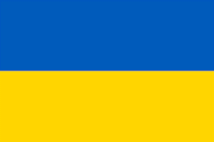
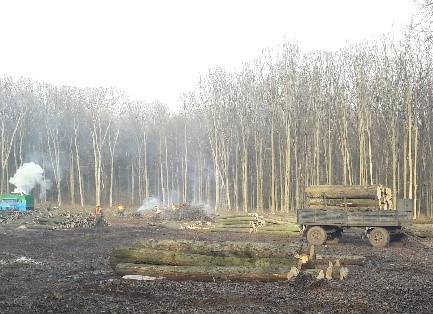


Population :
Total Area:
Forest area (tree cover > 10% ):
Dominant ecosystem:
Main trees species:
Charcoal production:
Charcoal exports:
43’786’472 (July 2019)
60’362’800 ha
9’399’500 ha
Temperate forest
Temperate hard/soft wood
150-200,000 t/yr (estimate)
171,000 tons (2020)
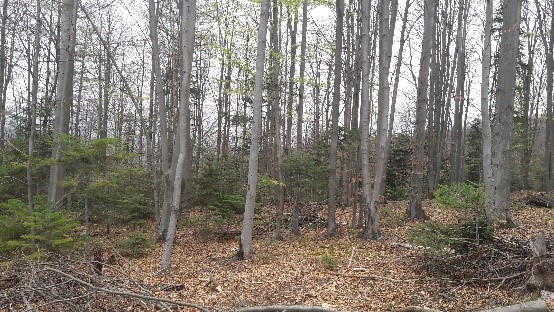
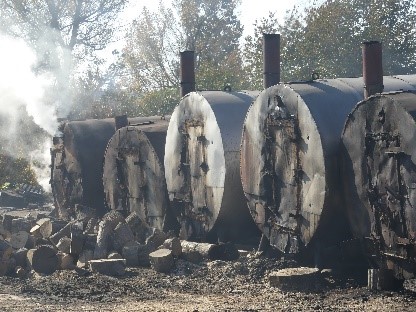
 Forest/Wood
Forest/Wood Charcoal is produced from temperate tree species (eg. Birch, pine, oak, beech…) that is most often logged by state forest enterprises. Illegal logging is a major issue in the country and can be linked to the charcoal trade.
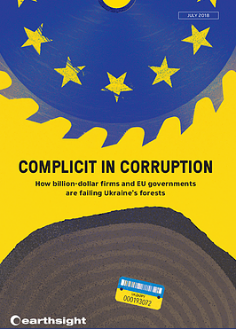
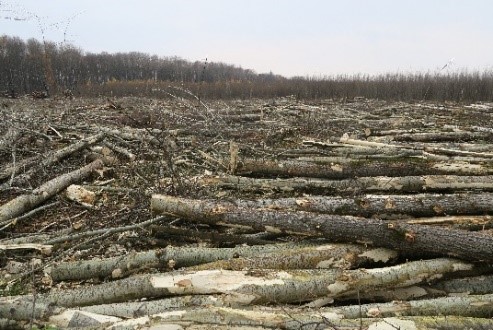
The continuous growth of the Ukrainian charcoal sector has been connected to illegal forest practices. Corruption at all levels (from government officials to state forest enterprises) and lax law enforcement make it easy for some to make money of illicitly cut timber. The most pressing issues are sanitary cuttings in absence of real biotic or abiotic threats by state foresters and illegal logging by communities. (see complicit in corruption report from NGO Earthsight)
In addition, FSC frauds have been observed in the country causing responsible forest management to be difficult to verify. The amount of FSC producing companies has drastically increased in the last few years but there have also been an increasing number of reports showing fraud and illegalities for FSC certified charcoal. In February 2019, FSC International together with Assurances International Services (ASI) suspended seven FSC chain-of custody certificate holders due to findings of wrongdoings in their charcoal supply chains. The Earthworm Foundation advocates for enhanced and improved FSC safeguard measures in Ukraine. Both FSC and EF have similar goals for responsible forest management in the country and intend to work together on these concerns.
 Production
ProductionRoundwood or sawmill residues are used to produce charcoal. The most common technology used is drum kilns, not well sealed, they can have a high emission rate of Greenhouse gases and particulate matter.
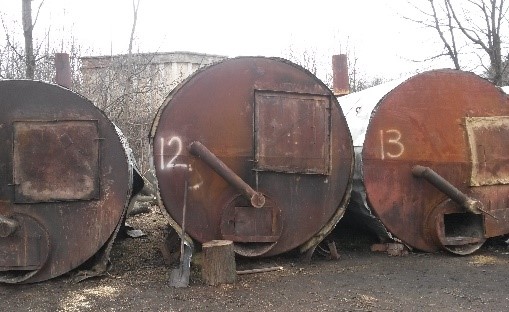
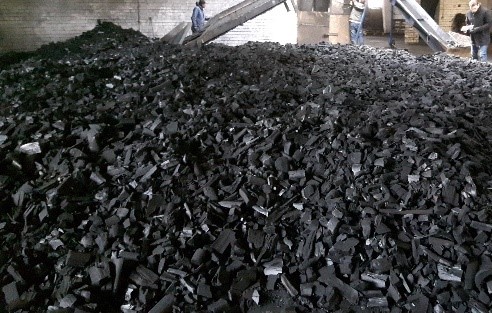
Ukraine is Europe's largest producer of charcoal and the demand for Ukrainian charcoal has increased dramatically in recent years. This is mainly due to shifting markets in Germany and France towards fewer charcoal imports from tropical and subtropical countries.
Charcoal in Ukraine is produced using various technologies depending on the producer, but the most commonly used technology has not evolved since the Soviet Union: cylindrical drum kilns. These are filled from the front with roundwood or sawmill residues and the combustion chamber underneath is lit using wood. The kilns are sealed for two or three days until the carbonization process is completed. The charcoal is cooled in the kilns. After the charcoal is completly cooled down, it is either spread out on the ground or put into poplypropilene bags for stabilisation for 1 day, before being packaged.
This technology does not recycle pyrolysis gases while more recent ones do. It is quite a polluting technology, realeasing GHGs and particulate matter into the atmosphere.
 Workers
WorkersDepending on the production site, working conditions vary enormously. Some work long hours for little pay and within low health and safety standards.
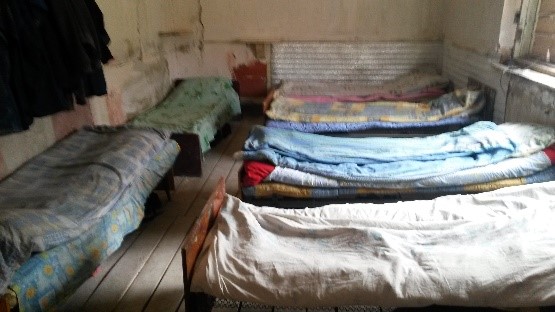
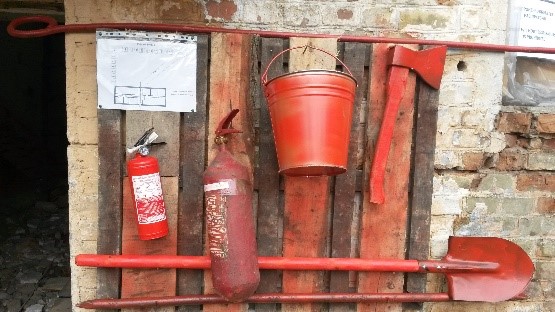
Through field visits to Ukraine, we could identify that the working conditions at some production sites show poor social standards. These include hard working conditions for low pay, often working long hours without proper work documentation, training or occupational health and safety equipment (the red tools above are often all they have for firefighting). Although legal requirements are usually met, conditions could be wildly improved in most production factories. Workers often live onsite in these isolated factories with few and low quality facilities.
 Transparency
TransparencyThe journey starts in the forest with state loggers, followed by wood traders, charcoal producers and charcoal traders before arriving at your store. The opacity and corruption found in Ukraine make real transparency difficult.
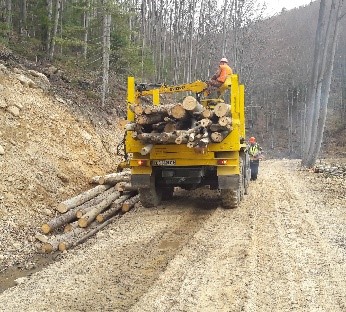
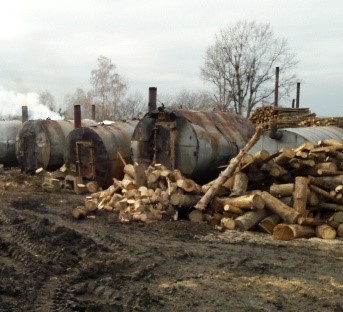
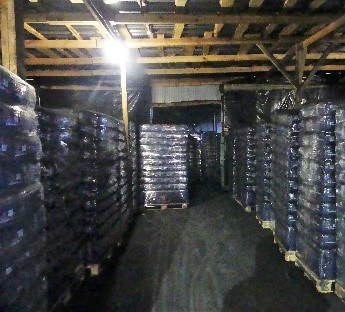
To have real transparency, traceability of the wood from the forest to the finished product in necessary. Not only must we know where the wood comes from and if it is legally harvested, but also if the amount of charcoal produced correlates correctly with the amount of wood used (if not, this probably means that the “producer” is actually importing charcoal from another country and selling it as their own). These processes are at the heart of what EF verifies when doing field assessments in Ukraine.
Globally, Ukraine does not rank among the top producing countries however, the high charcoal export values makes Ukraine the fourth largest exporter of charcoal in the world; 171 thousand tonnes of charcoal were exported in 2020. The destination countries are mainly Poland, Romania, Belgium Germany and France.
Charcoal production in Ukraine can be linked to illegal logging and workers’ rights issues. After several field visits in this country, we push for more responsible forest management and for full traceability from production site back to the forest, with proof of legality. We are working with companies to pressure the forestry and production systems in the country in order to bring positive change. We recommend:
The charcoal industry can be a driver for positive social and economic developments in the country. We want to support this development alongside local and European partners, NGOs, FSC to assure traceability within the charcoal industry.